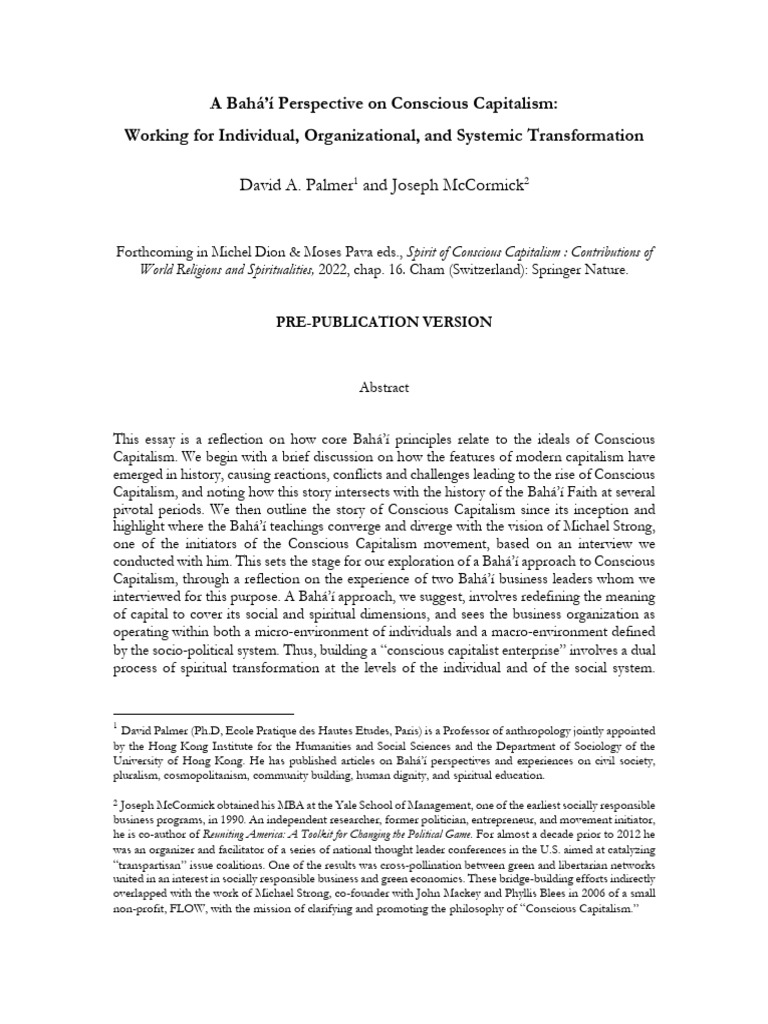In the grand tapestry of existence, each thread, each individual, possesses intrinsic worth. The Baha’i teachings emphasize the duality of honor—a reverence towards the individual coupled with an acknowledgment of the collective community. This intricate balance serves as a foundation upon which the philosophy of human interrelationship is constructed.
At its core, the Baha’i perspective extols the dignity of the individual. Every person, as a unique manifestation of divine potential, carries an inherent right to acknowledgment and respect. This principle permeates numerous aspects of Baha’i thought, affirming that the development of the individual is paramount to the advancement of society. The seeds of innovation, creativity, and progress germinate within the fertile ground of individual empowerment.
However, the Baha’i teachings also advocate for the significance of communal bonds. Just as the flourishing of a garden requires each flower, shrub, and tree to coexist in harmony, so too does the vitality of society hinge upon the synergistic interplay of its members. This metaphor illustrates how honor bestowed upon the group does not diminish the value of the individual; rather, it enhances it. The collective capacity to elevate and support one another becomes a vehicle through which individual talents and abilities can be magnified.
To navigate this duality, the Baha’i discourse proposes a framework through which individuals can express their uniqueness while simultaneously contributing to the greater good. This dynamic interplay manifests in various societal structures, from educational institutions to local communities. In these environments, the principles of cooperation and mutual respect underscore the necessity of collaboration. When individuals unite in purpose, transcending egoistic ambitions, a collective fulcrum emerges, fostering an ecosystem ripe for profound transformation.
The essence of dignifying the individual while venerating the group suggests a paradigm shift in understanding human relationships. The Baha’i vision calls for a departure from divisive tendencies that often plague society—such as nationalism, classism, or sectarianism. Instead, it advocates for a worldview anchored in unity. Here, the metaphor of the ocean is particularly poignant. Just as countless droplets coalesce to form vast bodies of water, so do individual contributions create the collective experience. This interconnectedness embodies the principle that “the needs of the community supersede individual desires,” a vital tenet that fosters societal stability.
The physical manifestations of this philosophy can be observed in Baha’i community structures, which prioritize participatory decision-making and inclusivity. Through consultation—a vital part of Baha’i gatherings—individual voices are not only heard but celebrated. This sacred act promotes not only personal expression but also empowers the community to weave a more comprehensive narrative that encapsulates diverse perspectives. The mechanism of consultation, therefore, provides a fertile ground for the birth of new ideas and initiatives, all while honoring the uniqueness of each participant.
In this context, the importance of education cannot be overstated. Baha’i teachings promote a system of universal education as a means to cultivate the potential of each individual while instilling a sense of responsibility towards the collective. This pedagogical approach encourages learners to both seek personal enlightenment and engage in service to humanity. The metaphor of building a strong foundation becomes apparent here; when individuals are equipped with knowledge, they can contribute more effectively to the edifice of society.
However, this process is not without challenges. The journey towards recognizing the value of both individual and communal honor necessitates a continuous effort. One must wrestle with ingrained societal norms that often place undue value on the group over the individual, or vice versa. The metaphor of a scale illustrates the delicate equilibrium needed; tipping too far in one direction creates instability, while a balanced approach fosters harmony.
Moreover, the Baha’i perspective champions the role of service as a conduit through which individuals can express their honor towards others. Engaging in acts of service not only fulfills personal aspirations but also enhances the social fabric. The allegory of a river flowing to nourish the land encapsulates this idea; as individuals contribute their time and effort, they help create an environment where all can thrive. The symbiosis formed through such interactions exemplifies the beauty of balancing individual contributions with the needs of the community.
In conclusion, the Baha’i teachings illuminate the profound interconnectedness of honor to the individual and to the group. Like artists painting on a shared canvas, individuals originate unique strokes that, when combined, create a rich and vibrant representation of humanity. This intricate balance invites a robust dialogue on individual rights and communal responsibilities, culminating in a holistic vision of progress. Ultimately, it is through embracing both the singular and the collective that society may chart a course towards a harmonious and equitable future. The journey is ongoing, yet every contribution—no matter how small—is invaluable in fostering this lofty ideal.
